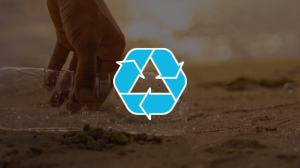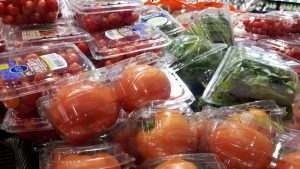How We Got Conned Into Drinking Bottled Water — And How We Can Stop
Millions of years ago, dinosaurs died and were covered with mud. Over a period of time we won’t pretend to wrap our heads around, organic matter that had once roamed and swayed above ground reduced like béchamel, some into a carbon-rich gravy, some into gas. Then, one day very late in our story, a petrochemical company sucked the stuff from deep beneath our feet and brought it into the light.
This was refined into ethane and naphtha, which were further refined and transmogrified into plastic, molded to the shape of a bottle, filled with water from a city tap, labeled, shipped across the country, refrigerated, purchased, humped miles into a National Park in Colorado and abandoned by the side of a hiking trail.
That’s where I stumbled upon it. Forgotten, crumpled in the dust with beads of water clinging inside its hazy walls — an unceremonious end for something that had traveled so far, but not an uncommon one.
Around the world, a million bottles of water are sold every minute, and although they’re almost entirely recyclable, most get tossed into landfills, clog up rivers, and sink to the bottom of the sea, taking anywhere from 500 to 1,000 years to degrade. In the U.S., more than 70% become waste.
In just a few decades, water went from a common resource many of us, especially those in the developed world, could access with minimal impact, to an incredibly popular packaged commodity with a serious environmental footprint.
Companies have had enormous commercial success selling us on the idea that water is better bottled. They have marketed their products as healthy, energy-boosting, ultra-hydrating, youth-enhancing and pure. Today, a true connoisseur can buy a $90 bottle of water extracted from melted Norwegian icebergs, while the average consumer thinks nothing of dropping a buck-fifty on 16 ounces of a liquid that tumbles — healthfully, hydratingly — from the faucet at home.
“Companies like Nestlé and Coke are taking the public’s water, putting it in a plastic bottle and marketing it,” said Judith Enck, founder of Beyond Plastics and a former EPA regional administrator under President Barack Obama.
In some ways, their success is the ultimate expression of modern capitalism. At the root of multiple, enormous environmental crises is an industry that has risen to a market value of $160 billion in 2019 by convincing the world to buy something most of us can get virtually for free.



